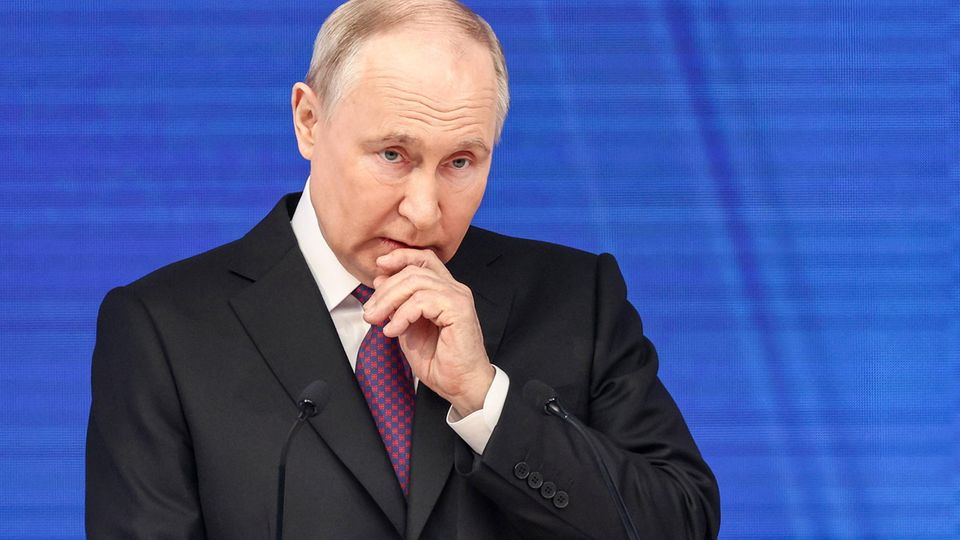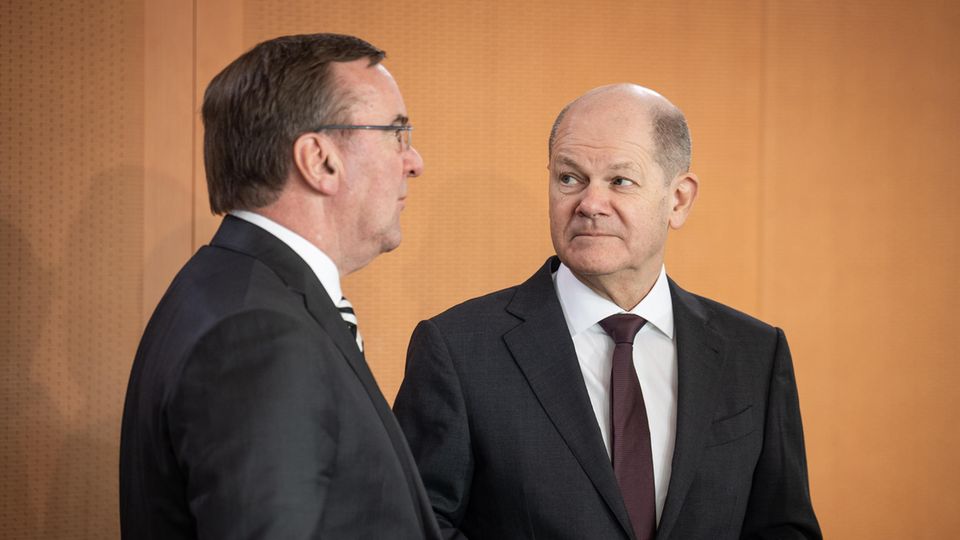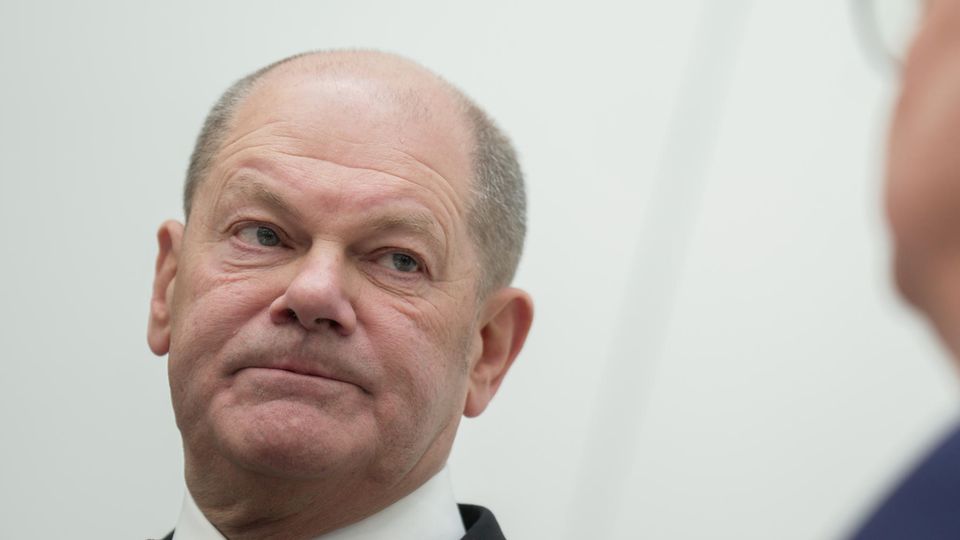British security expert Edward Lucas explains why European allies no longer trusted their German partner even before the Taurus wiretapping scandal.
Translation: Dagmar Seeland
In 1988, in the final days of the Cold War, I was a foreign correspondent in West Berlin. A British spy gave me a remarkable insight into the workings of the German secret services. “If you want the Kremlin to take something seriously,” he said, “then give it to the Germans and say it’s top secret.” The next morning, he assured, it would be on every desk in the Politburo in Moscow.
Apparently little has changed in Germany since then. Last Friday, the Russians revealed that they had intercepted a conversation between the Air Force chief and three senior colleagues. It was about the highly controversial question of whether Germany should supply Ukraine with Taurus long-range missiles. With these missiles, the Ukrainians could attack Russia’s logistics depots and supply lines – such as the bridge over the Kerch Strait that connects Crimea with Russia.
The Taurus leak damages the security of Allied troops
In any self-respecting country, the military would conduct such a highly confidential conversation using special telephone handsets over encrypted lines. It would insist that all participants only connect from safe locations. The inexperienced Germans, however, used Webex, a web conferencing system that is comparable to Zoom. One of the participants dialed in from Singapore – using a normal telephone. How exactly the Russian listeners were able to eavesdrop on the conversation is still being determined, but it shouldn’t have been too difficult.
Nothing was decided in the phone call. The delivery of the rockets continues to be blocked by Chancellor Olaf Scholz. But a 38-minute recording of the conversation released by the Kremlin revealed that Scholz had lied to the German public: In the tapped conversation, the high-ranking military officials said the missiles could be specifically programmed by well-trained Ukrainians. Scholz had claimed that only German soldiers who had to be stationed in Ukraine were capable of this – which, in Scholz’s eyes, represented an unreasonable provocation on Russia’s part.
The greatest damage, however, was not to Germany’s own reputation, but to the security of Germany’s allies. “I know how the British deliver their weapons,” said the head of the Air Force, Lieutenant General Ingo Gerhartz, in the conversation. He was referring to the Storm Shadow missiles that we Brits donated to Ukraine. “They always transport them in armored Ridgeback vehicles. And they have several people on the ground to do it.”
Germany is a burden in the European security network
Discussing military secrets over an unsecured phone line is grounds for termination. But you can’t dismiss an entire country. Western allies have just been confronted with the reality that our largest and richest European partner is a terrible burden. The British government headquarters at 10 Downing Street described the intercepted conversation as “a very serious matter” but declined to comment on whether there were plans to restrict the exchange of intelligence information with Berlin.
Nobody would blame the British government for considering such a reaction – after all, Scholz has fallen out of favor for other reasons too. It was only on Monday that he publicly stated that British soldiers were on the ground in Ukraine supporting the use of our Storm Shadow missiles.
This should have come as no surprise to Moscow. Nevertheless, it is embarrassing that the head of state would reveal a military secret to a supposedly trustworthy partner. The chairwoman of the Foreign Affairs Committee in the British House of Commons, Alicia Kearns, did not hold back. She described Scholz’s faux pas as “wrong, irresponsible and a slap in the face.” From the perspective of its Western allies, Germany is now a more than useless partner. That’s the sad truth.
Clueless, leaky German secret services
And no area of the German security apparatus is in a more disastrous state than its clueless, leaky secret services. In December it was only available as “Carsten L.” Well-known high officials of the German foreign secret service and his alleged accomplice Arthur E. are on trial for spying for Russia. The two were arrested not thanks to German care and thoroughness, but rather following a tip from the FBI.
Former CIA officer John Sipher once described German spies as “arrogant, incompetent, bureaucratic, useless.” For the Ukrainians, it is anything but funny that Scholz is hesitating about arms deliveries. The great hopes for the “turning point” that Scholz announced after the Russian invasion of Ukraine in 2022 have noticeably diminished.
Germany’s meager army remains underequipped, poorly led and strapped for cash. Berlin’s aversion to tough security thinking stems partly from the memory of the two catastrophic military defeats in the last century and partly from the Cold War era, when Germany was a potential nuclear theater.
Germany spied against the USA in Estonia
This past fuels anti-Americanism and anti-militarism. “Even the worst peace is better than the best war,” declared a leading German intellectual as Ukraine began its fight for survival. The fact that it might be worth fighting for freedom apparently doesn’t count in Germany.
This attitude also has a lot to do with greed. Germany obsessively pursued lucrative deals with Russia and China. The Germans, however, did not want to hear about the concerns of their eastern neighbors Poland, Estonia, Latvia and Lithuania. It was precisely these countries whose fate was sealed by the Hitler-Stalin pact in 1939. Germany historically owes them a lot, but instead of working to ensure their security, Berlin blocked NATO defense plans for these states for years.
Worse, Germany’s secret agents stole their secrets. As I revealed in my book “Deception,” the BND in Estonia recruited senior defense official Herman Simm to keep an eye on U.S. influence there. What the Germans didn’t know: Simm was also spying for the Russians. The damage was colossal.
Germany reacted condescendingly to warnings
I’m not a Germany hater. I lived and worked there for years. I tried to make Germans aware of the danger posed by an ever-present and now strengthening Russian imperialism. The German reaction was one of condescending disbelief. Meanwhile, Russian spies, gangsters and fraudsters played their evil game right under the noses of the bureaucratic German police and security services.
And that is another legacy of Germany’s past: resistance to state surveillance. Hitler’s Gestapo and later the Stasi in East Germany left deep traces. Strict data protection laws hinder German authorities from carrying out even the simplest security checks.
Journalist Michael Colborne recently demonstrated where this leads, when he only needed 30 minutes to track down a fugitive left-wing terrorist. 55-year-old Daniela Klette belonged to the murderous Baader-Meinhof gang and had lived in Berlin for years under a false identity, even though she was on the German wanted list. A simple internet photo search led to her hasty arrest by the previously unsuspecting German police.
Because of its policies, Germany is the weakest link in European defense. Imagine if a Russia emboldened by its success in Ukraine tested NATO’s resolve in Poland or the Baltic states. These states would respond with stubborn and determined resistance. We Brits and other allies will want to stand by them. What if Germany then shouts “diplomats instead of grenades” and demands that the crisis must be solved through talks and not war?
Because of its location in the northern European plain, Germany and its supply lines would be essential to bring relief supplies and ammunition to the front. But Berlin could resist direct involvement in a military conflict and close its borders to Allied deliveries.
A nightmare – but not fiction. At the beginning of the Russian attack on Ukraine, Germany closed its airspace to reinforcement flights. The unpleasant truth is that Germany is sleeping while Europe is burning. That’s why we in the rest of Europe have sleepless nights.
This article originally appeared in the UK’s Daily Mail.




